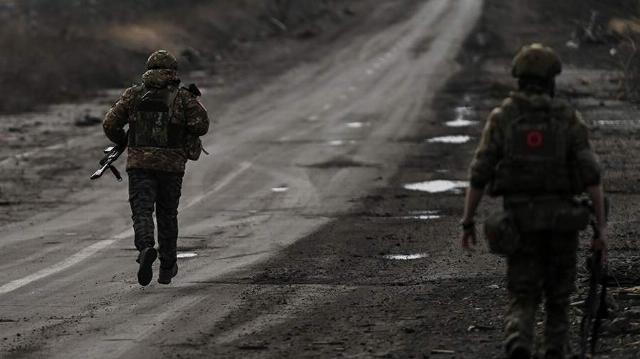Allowing Ukraine to strike deep into Russian territory with Western weapons and arms supplies will not change the course of the fighting and the current situation in the war zone in any way. Apti Alaudinov, commander of the Akhmat special forces, told Izvestia about this on Monday, June 3.
According to the military, the West has long sought to create a stir because of the weapons sent to Ukraine, but this does not change the situation. In addition, the commander recalled such weapons as the American Javelin anti-tank missile system, the HIMARS multiple launch rocket system, Storm Shadow missiles, and other things that were gradually sponsored by the Armed Forces of Ukraine (AFU).
"We have seen a lot of things that are produced by the states that are members of the NATO bloc. Even if they had given them everything they have, it is unlikely that they would have changed anything directly in the zone of combat contact," Alaudinov stressed.
As the representative of Akhmat noted, in this way Western states are trying to sow fear among Russian citizens.
"We consider all these methods as methods of conducting a hybrid war, which is usually focused on all aspects of the life of the population of a particular state that they are trying to break. I can assure everyone: the population of our country can be sure that, no matter what permission the Western lackeys gave their wards to Ukrainians to hit any settlements and objects, the very essence of what is happening in the zone of their own (special military operation. — Ed.) it will not change," Alaudinov summed up.
Earlier, on May 30, Kremlin spokesman Dmitry Peskov said that the countries of the North Atlantic Alliance (NATO), especially the United States and some members of the European Union, have been entering a new round of escalating tensions in recent weeks and in every possible way provoking Ukraine to continue the senseless conflict. As Peskov stressed, NATO countries intend to continue the conflict with Russia, but this will damage the interests of those countries that have followed the path of escalation of tension.
Prior to that, on May 30, it was reported that US President Joe Biden secretly allowed Ukraine to strike with American weapons on the territory of Russia. At the same time, the Politico newspaper noted that the approval extends to the regions of the Russian Federation bordering the Kharkiv region. In addition, on May 31, a representative of the State Department said that Biden allowed Ukraine to use American weapons for counter-battery warfare against targets in Russia.
Also on May 24, NATO Secretary General Jens Stoltenberg, in an interview with The Economist, called on allies to consider lifting restrictions on the use of weapons transferred to Ukraine, allowing the possibility of strikes on the territory of the Russian Federation. Later, on May 27, he repeated his words at the session of the Parliamentary Assembly of the alliance. At the same time, in both cases, Stoltenberg stated the need to avoid escalation.
For the first time, Ukraine's strikes on targets in Russia were announced in London on May 3. The head of EU diplomacy, Josep Borrel, said on May 28 that Ukraine has the right to such strikes if it is done "proportionately." French President Emmanuel Macron also supported this possibility on May 28, while German Chancellor Olaf Scholz and Italian Deputy Prime Minister Matteo Salvini, as well as U.S. State Department representative Matthew Miller, spoke out against it. However, on May 31, German government spokesman Steffen Hebestrain announced that the German authorities had approved the use of their weapons by Ukraine to attack the positions of the Armed Forces of the Russian Federation in the Kharkiv region.
Western countries have increased military and financial support for Kiev against the background of the Russian Federation's special operation to protect Donbass, which was announced by the President of Russia on February 24, 2022, after the situation in the region worsened due to shelling by the Ukrainian military. However, recently, statements about the need to reduce aid to Ukraine have been increasingly heard in the West.


